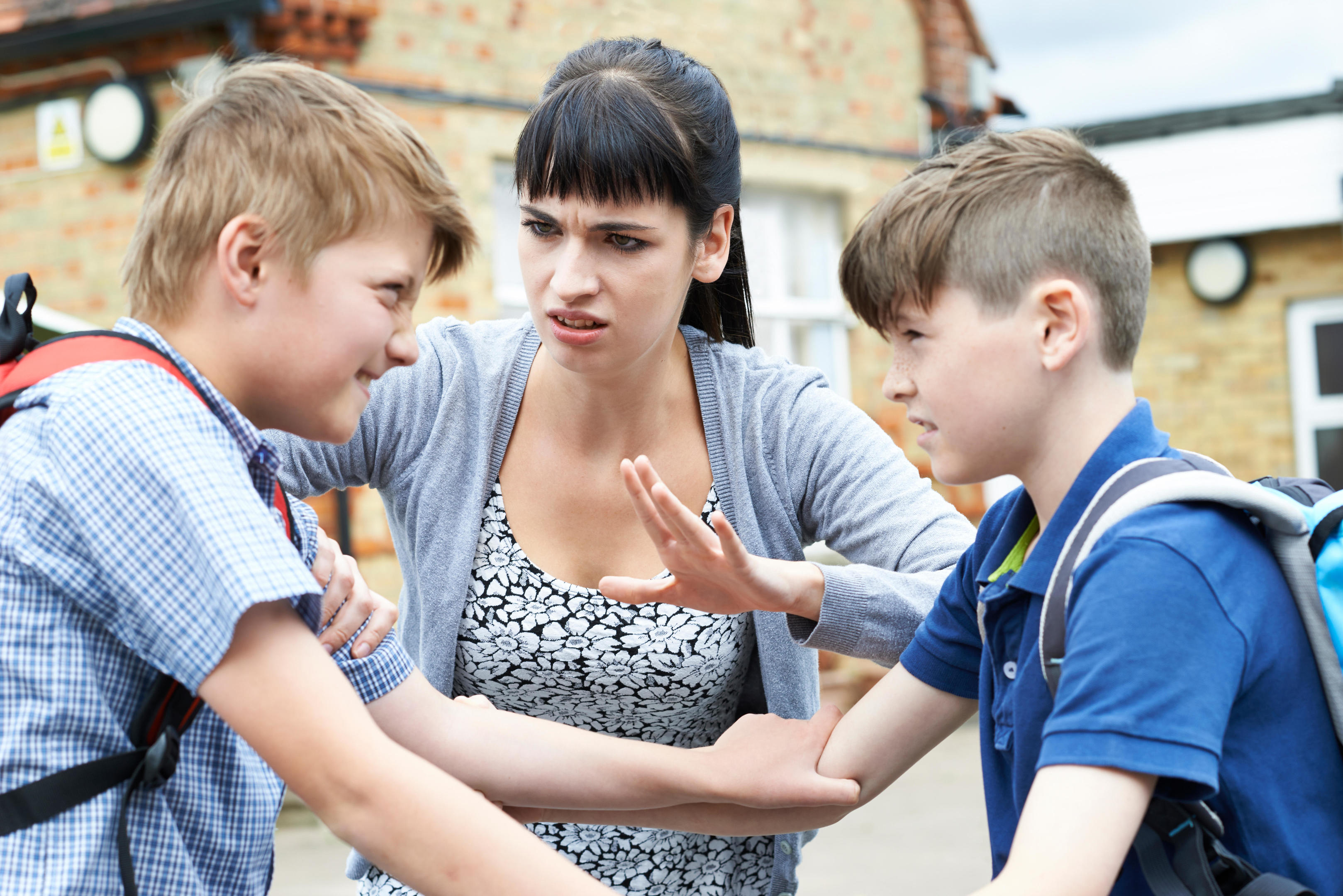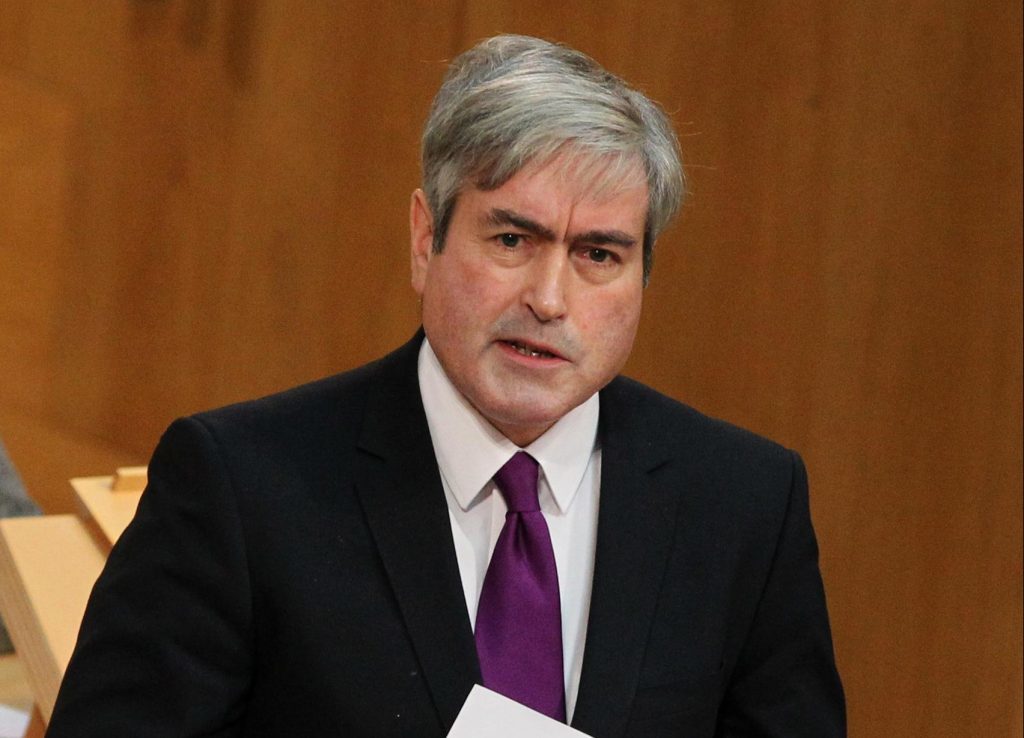
VIOLENT attacks by pupils on Scotland’s classroom assistants have rocketed by nearly a third in the space of just three years, new figures have revealed.
The 13,000 support workers in primary and secondary schools are now regularly being subjected to bites, punches and verbal abuse from unruly children.
An average of 35 attacks were recorded per school day last year according to union chiefs who claim pressure on the workers, who take home a fraction of the wage earned by teachers, is the “untold story of Scottish education”.
One in four Scots children now has additional support needs – a rate which has more than doubled since 2010 – but the number of dedicated staff for these demands has not kept pace.
GMB Scotland organiser Kirsty Nimmo: “We often hear about the pressures facing teachers on the frontline but rarely do we hear about or understand the increasingly challenging conditions facing school support staff – it’s the untold story of Scottish education.
“The rising levels of aggression and violence against support staff are shocking and the testimonies of our members should serve as a wake-up call to the Scottish Government and councils.
“Unfortunately this is yet another symptom of Scotland’s austerity shame after a decade of cuts to local government funding and year-on-year reductions to local education budgets. But this cannot go unchallenged, even amid the mounting problems affecting education.
“Aggression and violence at work can never be accepted as normal, irrespective of the working environment, and there needs to be a far greater recognition and respect for the vital public service delivered by these unsung heroes.”
Sunday Post View: Schools must be safe places for all who are in them
The GMB trade union asked Scotland’s councils for information on all incidents of violence and aggression against classroom and pupil support assistants over the last three years.
In January it emerged almost 10,000 teachers had also been attacked in Scotland’s schools over the past three years.
Of Scotland’s 32 councils, only 20 responded with the data requested so the total number of incidents will be even higher.
From the data provided, there were 6690 incidents of aggression or violence towards support staff in 2016/17, up from 5193 in 2014/15. Among the areas with the biggest increase was Aberdeen which saw its haul of incidents jump from 99 to 517 over the same period.
In Edinburgh, the number of cases has more than doubled in the space of three years from 405 to 1006, just behind Glasgow which had the biggest haul last year at 1113, up from 781 in 2014/15.
Scottish Labour’s education spokesman Iain Gray described the increase as “very worrying”.
Former teacher Mr Gray said: “All school staff face an increasing workload with thousands fewer teachers and support staff.
“The impact of cuts has many negative effects and this is a particularly worrying result – nobody should face the threat of assault at work. It is time the SNP stopped their cuts to the education system and gave our teachers and other staff in schools the support they deserve.” The number of attacks in Dundee increased from 261 to 405 – a hike of 35% – while South Lanarkshire teaching assistants were subjected to 310 acts of violence last year compared to 232 three years ago.
The number rose from 161 to 255 in West Lothian and from 282 to 391 in Angus over the same period.
There were 69,587 children with Additional Support Needs (ASN) in 2010, just over 10% of all pupils. By last year this was up to 170,329, or 24.9%. Over the same period the number of teachers and classroom assistants providing support to pupils with ASN has barely budged, with the 15,880 total from last year just 73 above the 2010 level despite the surge in ASN demand.
A spokesman for council umbrella body COSLA said: “Scotland’s councils take their duty of care to employees and all those they are responsible for very seriously indeed.
“COSLA are currently in talks with the Scottish Government regarding the spending review and will be presenting a strong case that Local Government cannot sustain further cuts, as experienced over the last two years, without significant impact on services and jobs, and most importantly the communities we serve to protect.”
A Scottish Government spokeswoman said the way pupils with ASN were recorded was changed in 2010, which was reflected in the figures.
She added: “We remain committed to ensuring all our pupils receive the necessary level of support. Since 2015, we have recorded a further 2.6% increase in the number of support staff employed in schools and centrally employed staff assisting additional support for learning.
“Ensuring the safety of everyone in school is of paramount importance to the Scottish Government and any violence towards staff or pupils is unacceptable.
“We are actively working with schools and local authorities to tackle serious disruptive behaviour and violence.”

Enjoy the convenience of having The Sunday Post delivered as a digital ePaper straight to your smartphone, tablet or computer.
Subscribe for only £5.49 a month and enjoy all the benefits of the printed paper as a digital replica.
Subscribe